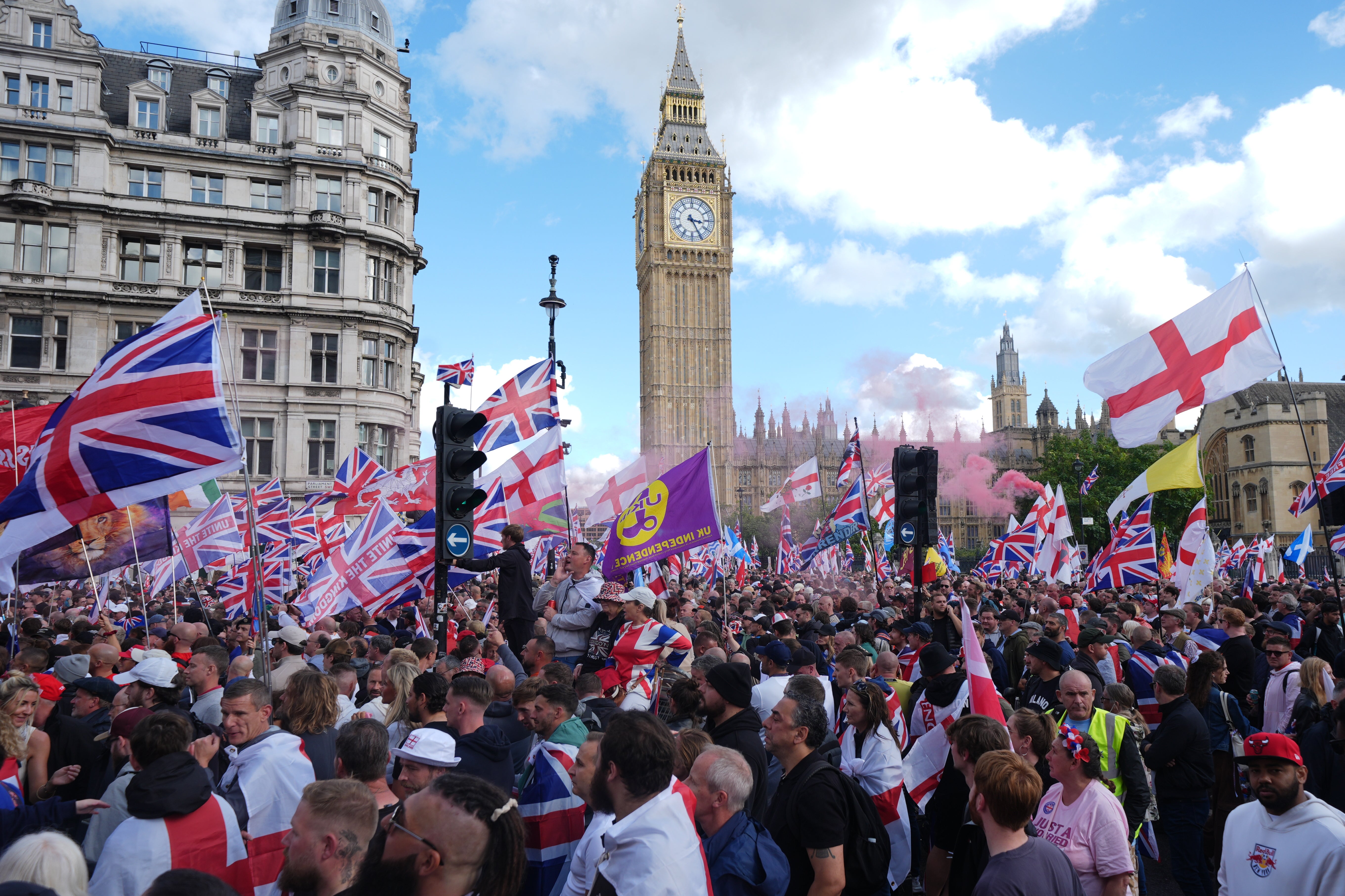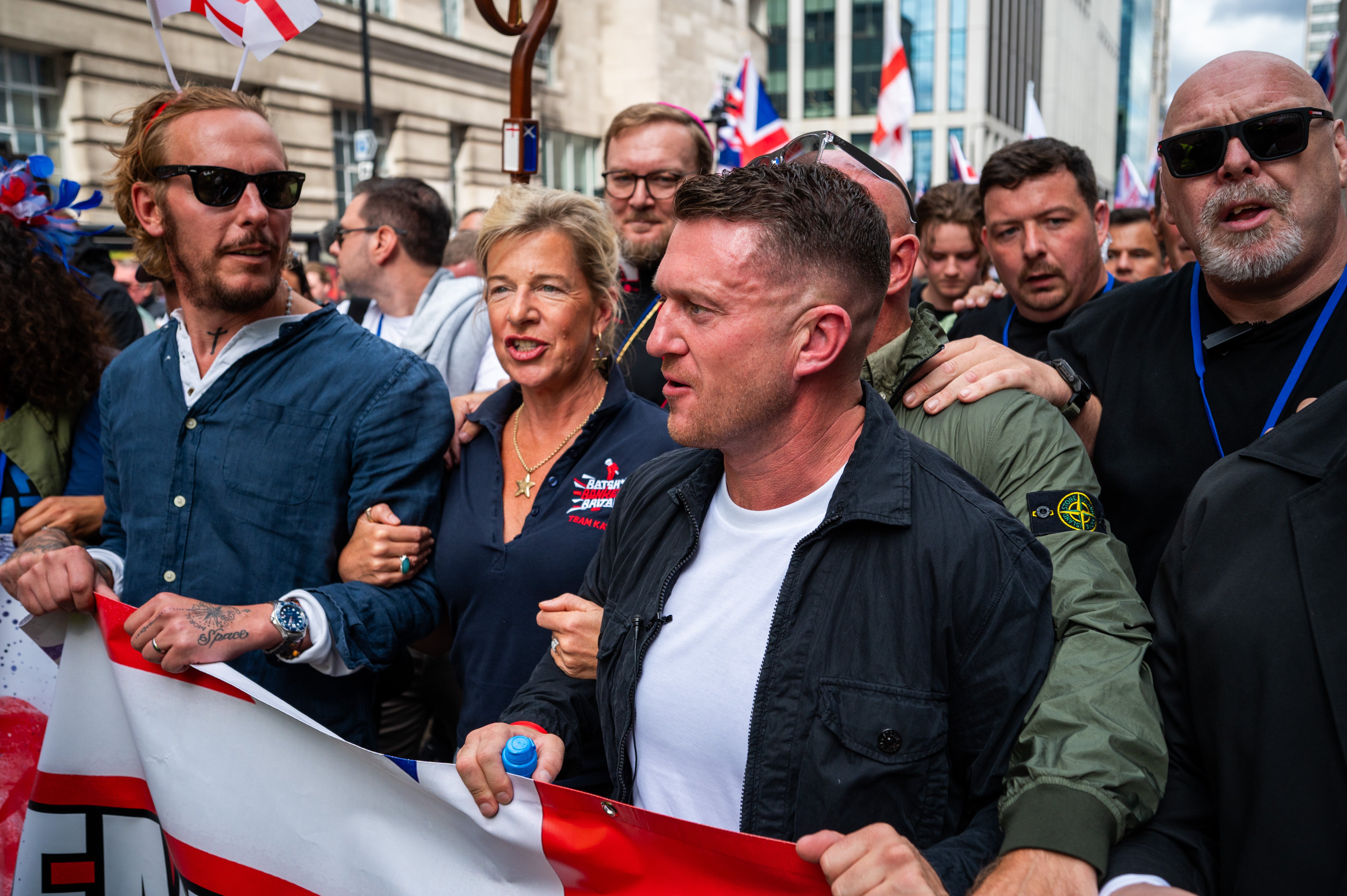The frontman of the band James has said the group is examining its options after Tommy Robinson used its song in a video without permission.
The far-right figure used the indie band’s smash hit ‘Sit Down’ in a video posted on X to highlight the size of the protest he organised in London on Saturday.
Between 110,000 and 150,000 people gathered in Whitehall for the “Unite the Kingdom” event spearheaded by Robinson, whose real name is Stephen Christopher Yaxley-Lennon.
At least 25 people were arrested and 26 police officers were injured at the demonstration.
Robinson posted the video on X made up of aerial footage of the rally to show the size of the crowd – and used James’ song ‘Sit Down’ to accompany it.
The former English Defence League leader captioned the clip: “Britain is awake, we are no longer afraid, you will not take our right to free speech @Keir_Starmer WE WANT OUR COUNTRY BACK.”
But James frontman Tim Booth hit back in his own post on X, describing the far-right rally as the “antithesis” of what his band’s song stands for.

He wrote: “Disgusted to see the cynical use of ‘Sit Down’ by @TRobinsonNewEra.
“No permission was granted, and we are looking into our options.
“The song and most of our topical lyrics, make it very clear where we stand, and it’s the antithesis of this organization.”
Saturday’s rally, which featured a guest appearance from Tesla and X owner Elon Musk, was faced by a counter-protest with 5,000 anti-racism campaigners.
The two groups were divided by a line of police horses and officers – some carrying riot shields – with one side waving placards that said “refugees welcome. Stop the far right” and the other flying Union and St George’s flags, as they stared each other down and continued to chant.

If a band’s work has been copyrighted and is used unlawfully, they can initially issue a formal request in the form of a case and desist letter for the accused party to stop using their work, according to the Institute of Contemporary Music Performance (ICMP).
It can then file a lawsuit for copyright infringement if no appropriate action is taken, which can lead damages payments or prevent the infringing party from using their work in future if successful.
Synchronisation licenses are necessary for using music in audio-visual projects, including in online videos where music is synchronised with visual content, the ICMP said.







